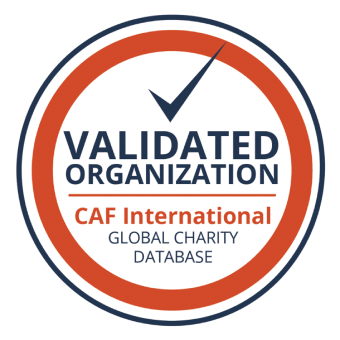Proper nutrition is crucial for children undergoing cancer treatment, as it helps support their recovery, mitigates side effects, and promotes overall well-being. Among essential nutrients, healthy fats are especially important, though they are sometimes overlooked.
What are Healthy Fats?
Fats are an essential part of a child’s diet, providing concentrated energy and aiding in the absorption of fat-soluble vitamins like A, D, E, and K. However, not all fats are created equal and hence all are not beneficial. Understanding the different types of fats—saturated, unsaturated, and trans fats and their food sources—can help individuals make healthier dietary choices. Consumption of trans fats (found in margarine or vanaspati) and excessive consumption of saturated fats from butter, whole milk, and red meat may negatively impact health by affecting immunity and heart health.
Healthy fats primarily include unsaturated fats, which can be classified into monounsaturated and polyunsaturated fats. These fats are vital for several bodily functions, including hormone production, nutrient absorption, and cellular health. Specifically, omega-3 fatty acids, a type of polyunsaturated fat, have received significant attention for their potential benefits in cancer care.
- Omega-3 Fatty Acids: Found in fatty fish (such as salmon and mackerel), flaxseeds, chia seeds, and walnuts, omega-3s are known for their anti-inflammatory properties. They play a crucial role in brain health and immune function.
- Monounsaturated Fats: These fats are found in foods like olive oil, avocados, and nuts. They support heart health and can help maintain healthy cholesterol levels.
How Healthy Fats Benefit Pediatric Cancer Patients
Energy Source and Weight Maintenance
Cancer treatments can suppress appetite, leading to potential weight loss. Fats are calorie-dense, meaning even small quantities provide ample energy, helping children who may struggle to consume large portions due to treatment-related side effects. Healthy fats also help stabilize weight, preventing excessive weight loss.
Anti-inflammatory Properties
Healthy fats, particularly omega-3 fatty acids found in fish, walnuts, and flaxseed, have anti-inflammatory effects. Inflammation is often associated with cancer, contributing to symptoms like fatigue and pain. Including these fats in a child’s diet can support faster recovery, reduce discomfort, and improve overall quality of life.
Brain Development and Cognitive Function
Omega-3 fatty acids, especially DHA (docosahexaenoic acid), are critical for brain health and development, which are vital for children to remain mentally engaged despite their illness. DHA supports cognitive function, memory, and learning.
Immune System Support
Pediatric cancer treatments can compromise immunity, and healthy fats are key for immune health. Medium-chain triglycerides (MCTs), found in coconut oil, are particularly effective because they are easy to digest and provide a quick energy source, which is beneficial for children with lower digestive capacity. Omega-3 fatty acids have also been shown to enhance immune response. Research has highlighted that omega-3 supplementation can improve the nutritional status of pediatric cancer patients and may enhance the effectiveness of chemotherapy by reducing inflammation and supporting immune function
Enhanced Nutrient Absorption
Fat-soluble vitamins, including A, D, E, and K, require fat for optimal absorption. These vitamins are essential for cell repair, immune support, and overall recovery, so including healthy fats in the diet helps ensure these nutrients are fully absorbed and utilized.
Aiding Appetite and Nutritional Intake
Side effects of cancer treatments can include nausea, vomiting, and digestive issues, which can make eating difficult. Natural sources of healthy fats are often easier on the stomach than processed foods. MCT oil, for example, can be added to smoothies or soft foods, providing essential calories without overburdening the digestive system.
Maintaining Hormonal Balance
Healthy fats are essential for hormone production, including hormones that regulate growth and metabolism. In pediatric cancer patients undergoing treatment, maintaining hormonal balance is crucial for overall health and recovery as the different kinds of treatments can disrupt the endocrine system.
Practical Ways to Include Healthy Fats in a Pediatric Cancer Diet
- Smoothies and Milkshakes: Blend in nuts (such as almonds or walnuts), seeds (flax, chia), or MCT oil for an easy, calorie-dense snack.
- Nut Butters: Almond or peanut butter can be spread on rotis or stirred into porridge for added nutrition.
- Fatty Fish: Opt for salmon or mackerel, which are rich in omega-3s.
- Nutritious Snacks: Offer a mix of nuts, seeds, or trail mix for energy and nutrients in small amounts.
- Homemade Laddoos and Bars: Blend roasted nuts and seeds with dates to make energy-dense snacks.
- Ghee: Adding a small amount of ghee to rice or spreading it on rotis enhances both flavor and calorie content.
In summary, while the nutritional needs of pediatric cancer patients can be complex, healthy fats are essential for supporting energy, reducing inflammation, and aiding in recovery. Fats are more than just a calorie source; they play a critical role in brain function, immune support, and nutrient absorption. However, it is essential to remember that, although these fats offer nutritional benefits, they are also calorie-dense. Consuming them in moderation is important to prevent an excessive intake of calories, which can contribute to weight gain. This aspect of healthy fats needs to be considered especially in children undergoing treatment for cancers that predispose them to weight gain such as Acute Lymphocytic Leukemia. Balancing these fats within a varied diet ensures that children gain their benefits without overindulging.
References:
- Podpeskar A, Crazzolara R, Kropshofer G, Hetzer B, Meister B, Müller T, Salvador C. Omega-3 Fatty Acids and Their Role in Pediatric Cancer. Nutrients. 2021 May 26;13(6):1800. doi: 10.3390/nu13061800. PMID: 34073158; PMCID: PMC8226718.
- Bojková B, Winklewski PJ, Wszedybyl-Winklewska M. Dietary Fat and Cancer-Which Is Good, Which Is Bad, and the Body of Evidence. Int J Mol Sci. 2020 Jun 9;21(11):4114. doi: 10.3390/ijms21114114. PMID: 32526973; PMCID: PMC7312362.





